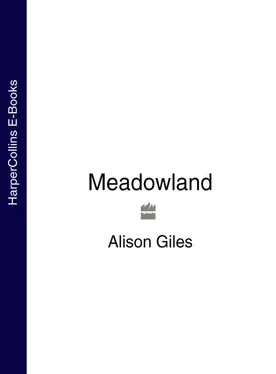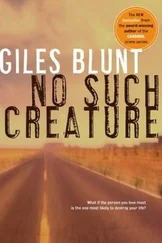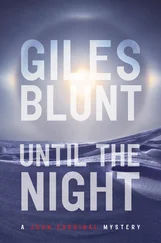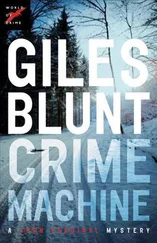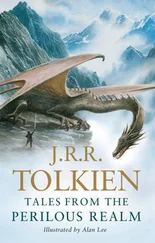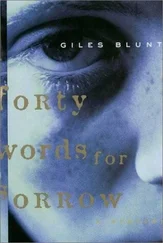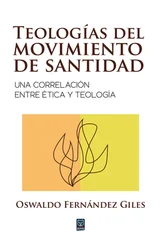I didn’t answer.
‘Oh, well,’ he said eventually, ‘it’s your life, I suppose.’
We’d reached the road. Ahead of us it dipped towards the village. As we turned off it to retrace our steps across the field and down the path to the house, I said, ‘I can’t see it would do any good to speak to her. It’s all in the past now.’
I marched on. ‘In any case,’ I said, as we descended to the garden, ‘Flora wouldn’t want to see me.’
‘You don’t think so?’
The house was empty. I retrieved my shoes and made towards the car. The Volvo stood next to it, the scrape disconcertingly visible.
‘I’m sorry,’ I said, grimacing towards the damage. Then, unnecessarily formally, ‘You’ve been very kind, and I’ve enjoyed my afternoon.’
He held the car door open. ‘See you again perhaps.’
The revving of the engine drowned my muttered, ‘I doubt it.’
I was angry. I knew I was angry, for reasons I couldn’t quite put my finger on, and I drove badly, narrowly missing a grey Metro as I swooped round the corner and changed gear for the climb away from the source of whatever it was that was bugging me. Its driver was a fair-haired woman. Two smaller heads bobbed in the back. I guessed it was probably Ginny. If so, I was relieved to have left; I was in no mood for polite conversation with a stranger.
Would Andrew tell Flora of my visit? What did it matter? My stupidity in returning here at all was embarrassing anyway.
I didn’t stop at my mother’s. It was too late, I told myself lamely, knowing the real reason was that I wanted to be alone. Safely back in Fulham, I switched on the hi-fi as I started to fling the contents out of my suitcase. A recording of popular arias was, for some reason, already in the machine. As soon as the baritone came in, I lunged for the off-button. I threw myself down on the sofa and pulled the crocheted rug, still awaiting attention, up over me. Forty minutes later, the burning smell of a forgotten pizza drifted through from the kitchen.
I was only just beginning to feel more relaxed when, halfway through the following week, the postcard arrived. The handwriting was large and sprawling. I turned it over. The brief message filled the space. ‘I’ll be at home next weekend if you want to come. F.’ I didn’t really need to check the postmark, but I did and it left me in no doubt. How did she have my address? But then she clearly knew a great deal more about me than I her.
No, I didn’t want to go, damn her. Whatever gave her the idea I’d want to have anything more to do with her? In any case, I’d already arranged to spend the whole of the bank holiday with Mother.
I’d been neglecting her shamefully, I’d reminded myself again early on Monday when the need to replace laddered tights had me nipping into Selfridges, one of her favourite London shopping haunts. I’d said as much when, fortified by the normality of a frenetic day at the office, I rang her that evening.
‘It has been a while,’ she acknowledged. ‘But you mustn’t worry about me.’
‘But I do.’
‘I wouldn’t want you to feel you have to come unless you want to.’
‘Of course I want to. It’s just that we’re so busy at work at this time of year and I’m utterly exhausted by the time I get home.’
‘Then you need a break.’ She promised me roast pork with crackling, and a lazy time in the garden.
Mother’s idea of relaxing outdoors usually involved back-breaking weeding, but I said, ‘Lovely. See you on Friday, then.’ I sketched out plans in my mind. We would go into the town together on Saturday morning as we always used to – I might even pick up a bargain in one of those little side-street boutiques – and in the afternoon drive over together to Windsor or Henley. Mother would enjoy that.
Poor old Mum. She’d had it tough. She needed my support; deserved it. After all, who was it who, virtually single-handed, cared for me through my growing-up years? I was looking forward to doing what I could to cheer her up. Over a cup of coffee, I glared again at the postcard and thrust it behind the toaster.
And there it would no doubt have curled and yellowed until eventually I threw it out if Mother hadn’t opted to postpone our arrangements.
But she did. At mid-morning on the Friday. When I’d already watered the plants, packed a bag, and brought the car into central London ready for a quick getaway at the end of the day.
Aunt Leah, she apologised down the wire in that slightly off-key voice I recognised as meaning she had already made up her mind, was begging her to accompany her on that coach trip to Wales she was so looking forward to. ‘Harold was going with her,’ she continued as though, despite having made the booking for them, I didn’t know, ‘but he’s decided now – now, I ask you – that his tomatoes are at a delicate stage and he can’t leave them. She’ll be so disappointed if she has to cancel …’
At any other time, I’d have grinned to myself; Uncle Harold had built up a lifetime’s subtle resistance to being organised. With wry amusement, I’d have imagined him in his greenhouse conspiring with his plants to produce the necessary excuse.
Today, exasperated, I flung my arm out in a gesture of frustration. A plastic container rattled to the floor, scattering paper clips. ‘Damn,’ I said.
‘Oh dear, I’m sorry. Is that upsetting your plans?’
Clearly it was upsetting my plans. ‘No, of course not. I just knocked something off my desk.’ I bent to retrieve the half-dozen clips that had landed within reach. ‘That’s fine. Have a good time.’ I tried to sound cheerful.
Alone in the flat that evening, ensconced with an Indian take-away and a bottle of wine picked up on my way home, I attempted, without much success, to still the voice of self-pity. The room, despite my having flung open all the windows, was hot and airless. The sound of children’s voices, and of a mother calling them in to bed, hung on the humid air like a long drawn out echo. Everyone I knew had taken the opportunity to get out of London for the holiday. Somewhere on the M4 a coach – one of ours, just to rub salt into the wound – was heading towards the Severn bridge. I felt thoroughly abandoned.
I refilled my glass. The bottle, I noted, was already more than half empty. Looking into it, as I held it up to pour again, I could see the inside of the label. Where the wine level cut it, the image shifted sideways. Refraction of light, I murmured. For a moment I was back in the science lab at school. All those bunsen burners and rows of chemicals in glass jars with enormous stoppers. And the smell – musty, yet sharp and sickly at the same time.
I’d never been very good at science. But I did remember about refraction of light. Perhaps because my father, poring over that piece of homework with me, had cited fishing to illustrate its application.
‘Maybe you’d like to come with me sometime?’ he’d suggested.
But my mother, looking up from her embroidery, had shaken her head. ‘Don’t be silly.’ Then, to me, ‘You wouldn’t want to, darling, would you?’
I stared into the bottle again, twisting and turning it to first maximise and then eliminate the distortion. ‘Interesting,’ I announced a shade over-solemnly.
I woke next morning with a dull head, aware of having slept restlessly. I heaved the duvet, three quarters of which had ended up on the floor, back on to the bed and went in search of orange juice. I was out of it. I plugged in the kettle, reached for the coffee jar, then changed my mind and tore the cellophane off a box of teabags. The windows were still open from the night before. The day promised to be another hot one, but for now it was cooler and I shivered. Crossing to the kitchen window to close it, I saw a woman opposite shaking a tablecloth into the air above her half of the two small squares of garden that divided us. I smiled, but she turned back inside without acknowledging me.
Читать дальше
